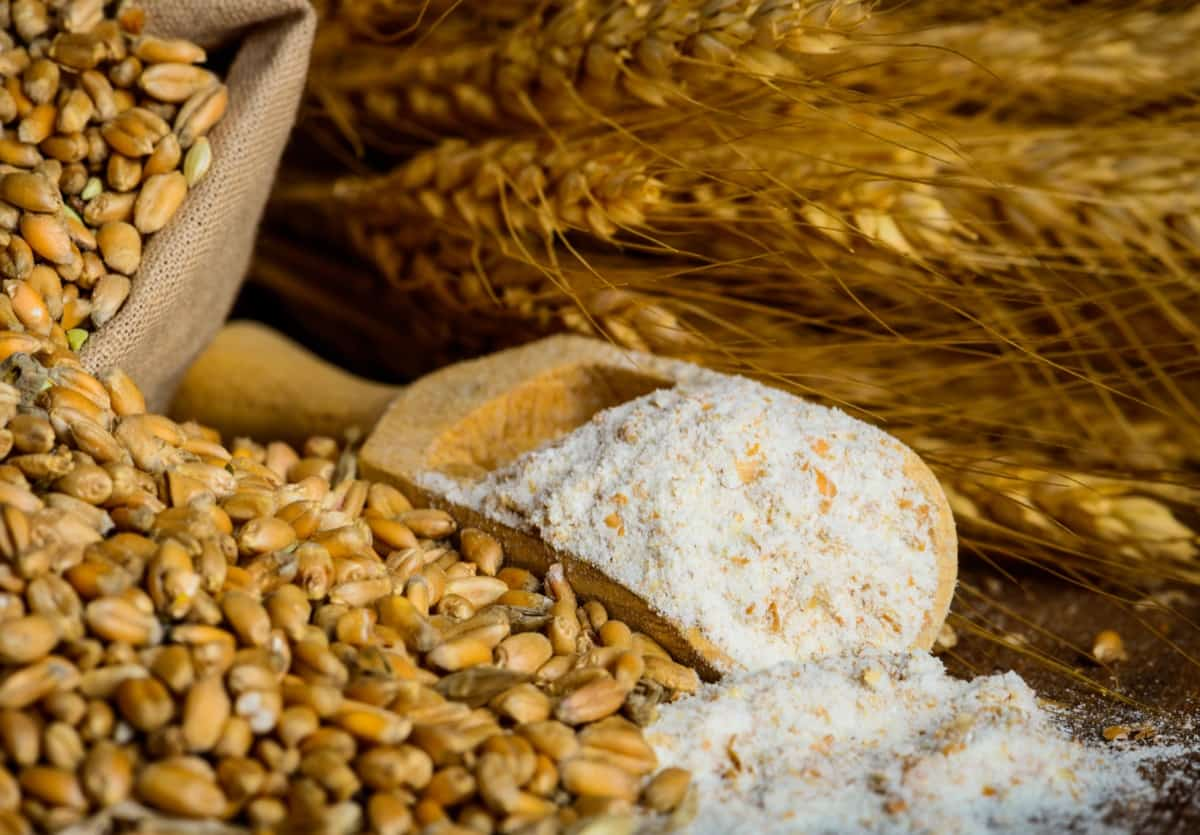Flour milling is a profitable agricultural business idea in India that involves processing grains into flour. It is an essential part of the food industry, and the demand for flour products is always high. Flour milling businesses provide a wide range of products, including wheat flour, rice flour, maize flour, and many others, which are used to prepare various food items. Below we learn about the flour mill business plan in India, the plant set-up cost and profit margin, and a step-by-step guide to starting your flour mill in India.

How to Start a Flour Milling Business in India: A Step-By-Step Guide
Conduct Market Research
Before you start your flour milling business, it is important to conduct thorough market research to identify the demand for your products, your target customers, and your competitors. This will help you determine the location of your business, the type of flour milling equipment you need, and the pricing strategy you should adopt.
Obtain Licenses and Registrations
Establishing a flour milling business in India calls for acquiring certain permits and registrations from various government agencies. This includes registering your business with the Registrar of Companies (ROC), obtaining a trade license from the local municipality, and obtaining a Food Safety and Standards Authority of India (FSSAI) license.
Secure Funding
Starting a flour milling business requires a significant amount of capital investment. You can secure funding from various sources, including banks, financial institutions, and investors. You can also explore government schemes and subsidies for small and medium-sized businesses.
Choose a Location
The location of your flour milling business is crucial to its success. Ideally, choose a location close to your source of raw materials and your target market. You should also consider factors such as accessibility, transportation, and availability of utilities.
Procure Equipment and Raw Materials
You must procure the necessary equipment and raw materials to start your flour milling business. This includes flour milling machines, packaging machines, weighing machines, and storage facilities. You should also source high-quality grains from reliable suppliers.
Hire Staff
Your flour milling business will require a team of skilled and experienced staff to operate the equipment, manage production, and handle customer service. You should hire staff with relevant qualifications and experience in the food processing industry.
In case you missed it: How to Start a Rice Mill Business in India: A Profitable Agriculture Idea

Develop a Marketing Strategy
You need to develop an effective marketing strategy to attract customers and increase sales. This includes creating a brand identity, developing a website and social media presence, and networking with potential customers and partners.
Monitor Performance and Improve Operations
To ensure the success of your flour milling business, you need to monitor its performance regularly and make necessary improvements. This includes tracking production, sales, and customer feedback, identifying areas of improvement, and implementing measures to optimize your operations.
Frequently Asked Questions about Flour Mill Business in India
What is the Profit Margin of the Flour Mill Business in India?
The profit margin of a flour milling business in India can vary depending on several factors, such as the scale of the operation, location, and the quality of the raw materials. Generally, the profit margin in this industry is quite high, with most businesses making a profit of between 15% to 20% of their total revenue. However, the profit margin can be even higher for those operating on a larger scale and accessing better-quality grains.
One of the key factors that can impact the profit margin of a flour milling business is the cost of raw materials. If you can source high-quality grains at a reasonable price, it can significantly reduce your production costs and increase your profit margins. Additionally, investing in modern technology and equipment can help streamline your operations, reduce wastage, and increase efficiency, positively impacting your bottom line. With proper planning and management, a flour milling business in India can be highly profitable.
What is the Flour Mill Plant Setup Cost in India?
Location, plant size and capacity, machinery and equipment needs, and the price of raw materials may all affect how much it costs to establish a flour mill factory in India. Generally, the cost of setting up a flour mill plant in India can range from INR 5 lakhs to INR 20 lakhs or more. The cost of machinery and equipment is a significant component of the total setup cost.
For example, the cost of a fully automatic flour mill plant with a capacity of 10 to 20 tons per day can be around INR 10 lakhs to INR 20 lakhs. Other costs, such as land acquisition, construction, labor, utilities, and marketing expenses, should also be considered when calculating the total setup cost. It is important to conduct a thorough market research and feasibility study before starting the business to accurately estimate the setup cost and ensure the profitability and sustainability of the flour milling business in India.
In case you missed it: How to Start a Cold-pressed Oil Business in India: A Profitable Agriculture Idea

How Much Land is Required for Flour Mill?
The land required for a flour mill depends on several factors, such as the size of the milling operation, the type of grains processed, and the production capacity. Generally, a small to medium-sized flour mill with a production capacity of up to 10 tons per day requires a land area of about 500 square meters. This includes space for the milling machines, storage facilities for raw materials and finished products, and office and administrative areas.
However, the land requirement can vary significantly for larger flour milling operations with a production capacity of more than 10 tons per day. These larger mills may require land areas of up to 2,000 square meters or more, depending on the type of grains processed and the production volume. It is important to note that the land requirement for a flour mill can also vary depending on the zoning and regulatory requirements of the local authorities, which may impose certain restrictions on the location and size of industrial operations.
Conclusion
Starting a flour milling business in India can be profitable, but it requires careful planning, adequate funding, and a deep understanding of the market and industry. It is possible to address India’s rising need for high-quality flour products by establishing a thriving and long-lasting business with the proper approach and plan.
- Feed Your Flock for Less: Top 10 Tips to Save on Chicken Feed
- Ultimate Guide to Ossabaw Island Hog: Breeding, Raising, Diet, and Care
- Hatching Answers: The Top 10 Reasons Your Chickens Aren’t Laying Eggs
- Eggs and Economics: Breaking Down the Cost of Raising Backyard Chickens
- Defend Your Greens: Proven Methods to Keep Iguanas Out of Your Garden
- Ultimate Guide to Cinnamon Queen Chicken: A Comprehensive Guide for Beginners
- Ultimate Guide to California Tan Chicken: Breeding, Raising, Diet, Egg-Production and Care
- Ultimate Guide to Marsh Daisy Chicken: Breeding, Raising, Diet, and Care
- 10 Types of Chicken Farming Businesses You Can Start for Profits